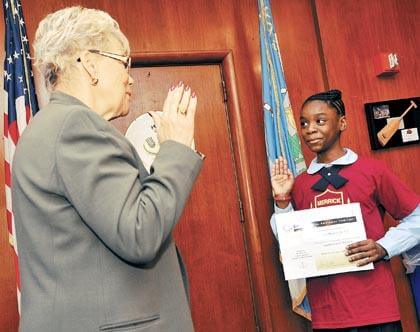By Anna Gustafson
New York City charter school students are outperforming their traditional public school peers in reading and math, according to a new study from Stanford University.
While city officials cheered the results, some Queens lawmakers were skeptical of the study.
“The Stanford University study is further evidence that New York City’s charter schools are producing outstanding outcomes for students, including many of our highest-need children,” said Ann Forte, Department of Education spokeswoman. “The findings support other recent independent research. This won’t come as news to the tens of thousands of families across the city who continue to lead the drive to open more quality charter schools.”
Queens lawmakers, union officials, and other state politicians, however, have lambasted charter schools for enrolling fewer of the city’s poorest students, English-language learners and special education pupils.
“Charter schools are meant to help make improvements for all students, not a small percentage,” Comptroller John Liu, a former Councilman from Flushing, said in a Jan. 3 release sent out by the United Federation of Teachers calling for students to have greater accessibility to charter schools.
The city DOE commissioned Stanford in July 2009 to conduct the study that was released as legislators in Albany debate whether to raise or eliminate the cap on the number of charter schools. According to a Stanford release, charter schools in New York “are modestly but significantly behind in reading gains during their first year, but receive an immediate, significant benefit in math compared to their traditional public school counterparts.”
Researchers used three years of data to compare students in the city’s charter schools to a control group of pupils who were similar demographically and academically and found the charter students scored 15 points higher on their state math tests and four points higher on their state reading tests.
According to the study, more than half the charter schools showed academic growth in math that is statistically larger than their students would have achieved in their regular public schools. A third of charter schools showed no difference, and 16 percent were found to have significantly lower learning, the study said.
In reading, the numbers are not as strong, but the study shows that nearly 30 percent of charter students outperformed their public school counterparts, 12 percent delivered worse results and about 60 percent are producing learning that is equivalent to their regular public school counterparts.
“In their second year, charter school students have substantial gains in both reading and math, and this impact stays positive and significant through their third year of attendance,” Stanford said.
Students who did not perform well in public school, those living below the poverty line, and minority students also achieved gains in charter schools, according to the study.
“The study shows that it is possible to create a strong environment in which charter schools are both encouraged and required to deliver high quality education to all students regardless of background,” said Margaret Raymond, director of CREDO at Stanford University. “The charter sector in New York City serves as an important benchmark for education policy makers in other states as they move forward with their own charter school policies.”
State Assemblyman Rory Lancman (D-Fresh Meadows) said the charter schools have not accomplished what officials originally wanted the system to do.
“The purpose of having a very limited number of charter schools is to allow for experimentation and innovation,” he said. “After determining which experiments work, then we should import them into the public school system — this is the concept of a charter school I’m support of. Instead, what they are becoming is an alternative school system that has not focused on making public schools better but being a separate and unequal system of education that benefits those kids whose parents can compete and participate to get their kids into those schools.”
Councilman Mark Weprin (D-Hollis), a former state assemblyman, said he supports charter schools but said it is unsurprising charter students would rank higher than their public school counterparts in reading and math because they probably have more involved parents than some students in regular schools.
“They have parents who made the effort to get them into a different school,” Weprin said. “Public school parents don’t necessarily take an active role. So I’m not sure how much it has to do with what’s going on in the charter school.”
Reach reporter Anna Gustafson by e-mail at agustafson@cnglocal.com or by phone at 718-229-0300, Ext. 174.

































